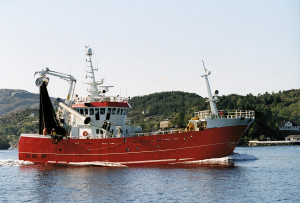Europa legaliseert overbevissing
Overbevissing in Europa wordt structureel gelegaliseerd. Dat is het gevolg van het Meerjarig Visserijplan voor de Oostzee waarover deze week een deal is gesloten tussen de EU-lidstaten en het Europees Parlement. De Partij voor de Dieren waarschuwt dat het overeengekomen plan in strijd is met eerdere afspraken om overbevissing uiterlijk in 2020 te stoppen. “Dit plan legaliseert niet alleen overbevissing in de Oostzee, maar indirect ook overbevissing in de Noordzee en andere EU-wateren,” zegt Europarlementariër Anja Hazekamp, die namens de Partij voor de Dieren deelnam aan de onderhandelingen.

De maandenlange onderhandelingen over het visserijplan voor de Oostzee liepen uiterst moeizaam. Het onderhandelingsteam van het Europees Parlement pleitte ervoor om overbevissing uiterlijk in 2020 te stoppen. “De visserij terugbrengen tot een duurzaam niveau is noodzakelijk om te voorkomen dat onze zeeën volledig worden leeggevist. Zeven van de acht vissoorten in de Oostzee zijn in gevaar door overbevissing en andere factoren. De Middellandse Zee is zeer ernstig bedreigd en ook in de Noordzee zijn vispopulaties in de problemen. Het meerjarenplan voor de Oostzee was een kans om een start te maken met het aanpakken van overbevissing,” aldus Hazekamp.
Nederland en andere EU-landen weigerden tijdens de onderhandelingen echter om een duurzame visserijgrens te accepteren. “De EU-lidstaten bleven uitzonderingen bedingen om toch méér te mogen vissen. Een meerderheid van het onderhandelingsteam is onder grote druk van de lidstaten en de Europese Commissie overstag gegaan. De gevolgen zijn groot en zullen niet beperkt blijven tot de Oostzee,” zo waarschuwt de Partij voor de Dieren, die niet akkoord ging met de overbevissingsdeal.
“Het Oostzeeplan zal ook als uitgangspunt gelden voor de Noordzee, de Middellandse Zee en andere Europese wateren. Structurele overbevissing in Europa wordt daarmee gelegaliseerd,” aldus Anja Hazekamp.
Er is nog één kans om de legalisatie van overbevissing tegen te houden. Het voltallige Europees Parlement moet het plan nog goedkeuren in een plenaire stemming met alle 751 leden.
De Tweede Kamerfractie van de Partij voor de Dieren zet vraagtekens bij de rol die Nederland heeft gespeeld bij het tot stand komen van het Oostzeeplan. Kamerlid Frank Wassenberg heeft Kamervragen gesteld aan staatssecretaris Van Dam over de Nederlandse inzet tijdens de onderhandelingen.
Overfishing in Europe will be permanently legalised. This is due to the Multiannual Plan for Fisheries in the Baltic Sea on which a deal was concluded between the EU member states and European Parliament this week. The Party for the Animals warns that the agreed plan is in defiance of earlier commitments to put an end to overfishing before the year 2020. “This plan will not only legalise overfishing in the Baltic Sea, it will consequentially make overfishing in the North Sea and other European waters legal as well,” says MEP Anja Hazekamp, who took part in the negotiations on behalf of the Party for the Animals.

The months of negotiations on the plan for fisheries in the Baltic Sea advanced with difficulty. The EU negotiating team called for an end to overfishing before the year 2020. “Gradually reducing the level of fishing to sustainable levels is absolutely necessary to prevent our seas from becoming completely fished out. Seven out of the eight fish species living in the Baltic Sea are endangered due to overfishing and other factors. Fish populations in the Mediterranean Sea as well as in the North Sea are under serious threat. The multiannual plan for the Baltic Sea was our chance to start tackling the issue of overfishing,” according to Hazekamp.
However, as the negotiations proceeded, the Netherlands as well as other EU countries refused to accept a sustainable fishing limit. “EU member states kept negotiating exceptions which would allow them to fish over the set limits. A majority of the negotiating team changed their minds due to great pressure from the member states and European Commission. This will have major consequences which will not be confined to the Baltic Sea,” warns the Party for the Animals, which did not support the overfishing deal.
“The Baltic Sea Plan will also serve as a starting point for the North Sea, the Mediterranean Sea and other European waters. It will thereby legalise structural overfishing in Europe,” says Anja Hazekamp.
There is one final chance to stop the legalisation of overfishing. The plan still has to be adopted by the entire European Parliament in a plenary vote with all 751 members.
The Party for the Animals´ Lower House faction questions the role that the Netherlands has played in the realisation of the Baltic Sea Plan. MP Frank Wassenberg has posed questions in Parliament to State Secretary Van Dam about the input from the Netherlands during negotiations.